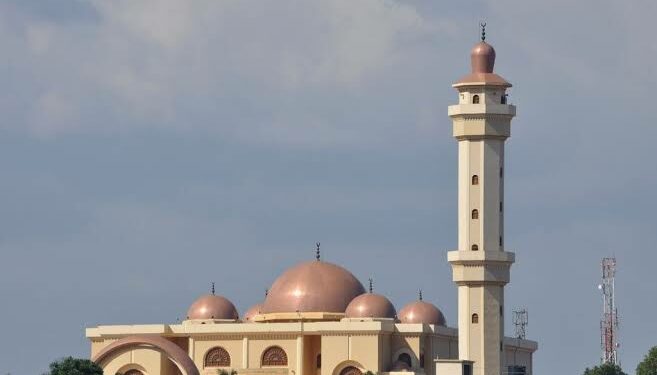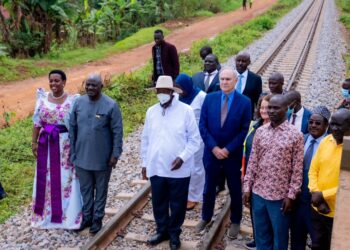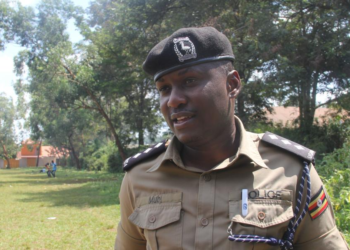The Uganda Muslim Supreme Council (UMSC) General Assembly, an event that should have been a serene affair at the iconic Old Kampala National Mosque, turned into a Shakespearean drama of suspension, expulsion, and legal turmoil.
Amidst the solemn echoes of prayer, chaos erupted as six vocal delegates were abruptly suspended, their names echoing through the hallowed halls like thunder on a clear day.
Hajj Abdul Kiyimba, Sulaina Kigongo, Kamara Zuraika, Musa Muyinda, Huzairu Ssendegeya, and Yasin Kakuru—delegates from various regions—found themselves ousted, allegedly for their outspokenness against the current administration.
The UMSC Secretary-General, Hajji Abbas Sekyanzi Muluubya, wielded the gavel of authority, emphasizing the formation of a disciplinary committee to probe these delegates’ supposed misconduct.
It was a scene straight out of a gripping courtroom drama, as these suspended figures prepared to defend themselves against the mighty accusations.
But the suspense did not end there. Sheikh Ramadhan Mulindwa, the Khadi of Luwero District, emerged as a pivotal figure, hinting at the clandestine disclosure of UMSC details by the ousted members. The alleged unauthorized revelation of council secrets added an element of mystery to an already riveting plot.
Journalists barred from the assembly room were left to gather scraps of information from the aggrieved delegates, painting a vivid picture of suppression fueled by dissent against the administration’s control and the Mufti’s dominion over Muslim affairs.
Sulaina Kigongo, fiery and resolute, declared war on the UMSC leadership, vowing to storm the courts with legal thunderstorms, claiming their expulsion was an illegitimate act against their rightful membership.
Meanwhile, within the assembly’s chambers, a fierce debate raged over the meeting’s agenda. Yasin Kakuru’s valiant attempt to shift focus onto the jeopardy looming over Muslim properties fell on deaf ears, leading to his forceful eviction, leaving a palpable air of injustice.
As the assembly continued, resembling a battleground of ideologies, Hajji Muluubya’s explanations attempted to douse the flames of discontent. Reports flowed in from various sector committees, interspersed with heated resolutions approving the UMSC’s strategic plan and budget for 2024.
However, the assembly was a mere microcosm of the broader turmoil gripping the UMSC. The looming threat over Muslim properties, entangled in a legal labyrinth with businessman Justus Kyabahwa, had cast a menacing shadow over the council.
Kyabahwa’s legal victory in the Court of Appeal, allowing the sale of UMSC properties to recover a colossal debt, was the crescendo of this tempestuous saga. From the sale of the Gadafi Mosque to the intricacies of land deals involving key figures within the council, this legal saga had all the makings of a blockbuster thriller.
Deputy Secretary General Muhammad Ali Aluma’s futile plea for a stay of execution, echoing in the courtroom, signaled a battle far from over, with the UMSC clinging to their last legal straws in the face of impending property loss.
The UMSC General Assembly, a convergence of faith and governance, had morphed into a theater of suspension, expulsion, legal wrangling, and the imminent loss of prized properties, leaving the fate of the council hanging in the balance.
Do you have a story in your community or an opinion to share with us: Email us at editorial@watchdoguganda.com













